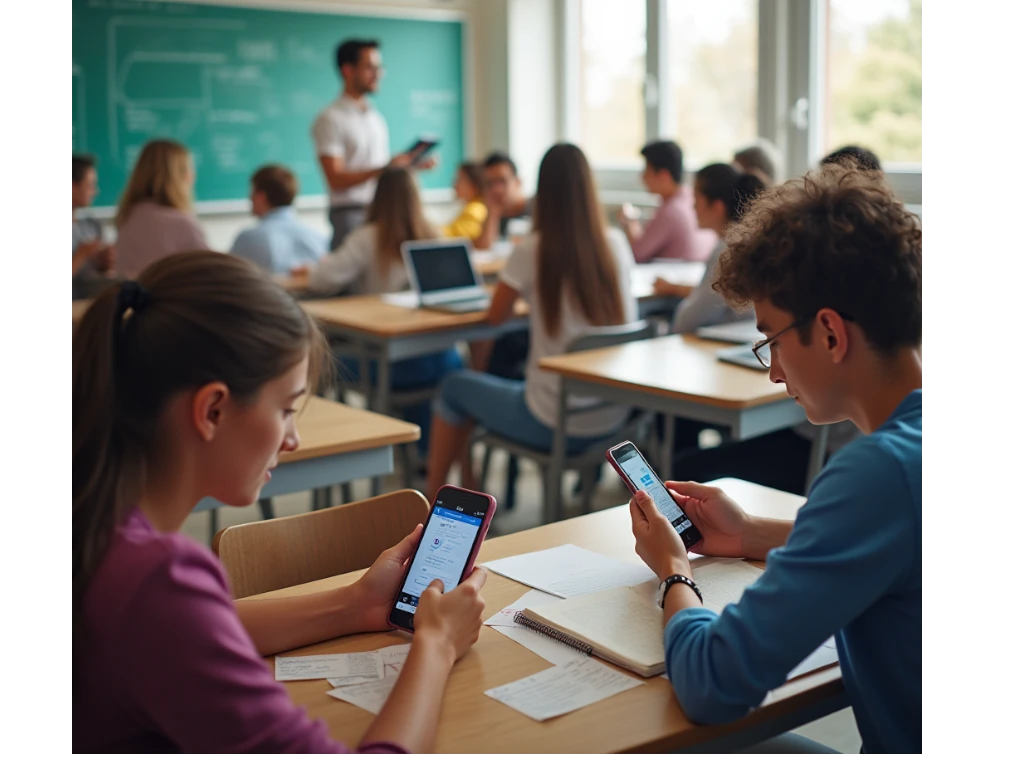As parents, we often find ourselves torn between the benefits and drawbacks of technology, especially when it comes to our children. The use of phones in schools is one of the biggest debates today: are they helpful tools for learning or just another distraction? Let’s explore both sides and how to strike the right balance for our kids.
Key Points You’ll Learn
Some schools ban phones completely; others insist students keep them off during the school day, while some permit limited use. It’s crucial to understand your child’s school policy. Phones can provide rich learning opportunities but also create significant disruptions. Parents and students must set rules to ensure technology becomes a helpful tool in schools.
Today’s Classrooms: A Whole New World of Technology
Remember the classrooms we grew up in? Now, chalkboards, textbooks, and even overhead projectors are relics. Today, interactive screens and laptops dominate. Still, one piece of technology is making waves—cell phones. With nearly every student having one, the question remains: should phones be allowed in schools? Let’s dive into both sides of the debate.
How Phones Can Enhance Learning
1. Instant Access to Information
Phones give students instant access to a wealth of information. Whether they need to research a topic, find an answer, or explore an idea, it’s all there with just a tap. Educational apps and e-books make learning more fun and interactive, turning a simple phone into a learning powerhouse.
2. Improved Communication & Teamwork
Phones allow students to collaborate more easily. They can message each other about assignments, email teachers for clarification, and work on group projects in real-time. For students who feel nervous about speaking up, these text-based tools offer a chance to contribute without the pressure of speaking in front of the class.
3. Emergency Situations
In an emergency, a phone is more than a convenience—it’s a lifeline. Whether it’s contacting parents during a health scare or reaching out during a crisis, phones provide crucial support when needed most.
Why Phones May Distract from Learning
1. Distractions Galore
Let’s face it: kids are masters of distraction. With phones, it’s even easier for attention to drift away from the lesson. Whether it’s checking social media, playing games, or texting friends, phones can quickly turn a focused classroom into a chaotic one.
2. Cheating Made Easier
Phones and the internet have made it easier for students to cheat. With access to AI tools and online resources, it’s a challenge for teachers to ensure academic honesty.
3. Social & Emotional Concerns
Gone are the days when students used lunchtime and breaks to engage face-to-face. With heads down in phones, students are losing critical social skills. Excessive phone use can lead to anxiety, isolation, and even cyberbullying.
Striking a Balance: What Parents and Schools Can Do
1. Clearly Establish Rules
Both parents and schools need to set clear boundaries for phone use. Schools can allow phones during breaks but restrict them during class. Parents can reinforce these rules by creating tech contracts at home that outline when and how phones can be used.
2. Teach Digital Literacy
Schools need to teach responsible phone use. Classes in digital literacy can focus on online safety, ethics, and research skills. Parents should discuss digital citizenship with their children, teaching them how to treat others respectfully online.
3. Provide School-Approved Devices
Schools can offer tablets or laptops meant for educational use. These devices provide access to technology while minimizing the distractions of personal phones.
The Role of Phones in Education
There is no right or wrong answer when it comes to phones in schools. While they can be valuable learning tools, they also come with challenges. The key is to find a balance that works for your family and school. With clear rules and open discussions, phones can be both helpful and effectively managed.


Comments